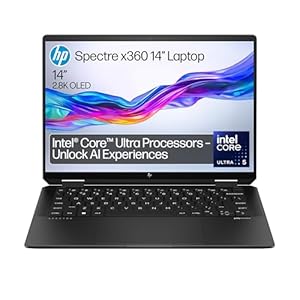As a gaming enthusiast, you know that choosing the right GPU for your laptop is crucial for optimal gaming performance. You might be surprised to discover the intricate details beyond just clock speed and memory capacity that impact your gaming experience. Understanding these nuances can make a significant difference in how smoothly your favorite games run on your laptop. So, before you make your next GPU purchase, consider delving into the world of laptop GPUs to elevate your gaming sessions to the next level.
GPU Basics for Gaming Laptops
When choosing a gaming laptop, understanding the GPU basics is crucial to ensure optimal performance for your gaming needs. The GPU, or graphics processing unit, is a key component responsible for rendering images, animations, and videos on your screen. In gaming laptops, the GPU plays a significant role in determining the visual quality and frame rates of your games.
GPUs are designed with different levels of performance, ranging from entry-level to high-end models. The performance of a GPU is measured by factors such as clock speed, memory bandwidth, and the number of cores it has. These specifications directly impact how well your laptop can handle graphics-intensive games.
It’s essential to consider the type of games you plan to play when selecting a GPU for your gaming laptop. More demanding games will require a higher-performing GPU to run smoothly at higher settings. Understanding the GPU basics will help you make an informed decision when choosing a gaming laptop that meets your performance expectations.
Performance Comparison of Laptop GPUs
To evaluate the performance differences among laptop GPUs, compare factors such as clock speeds, memory bandwidth, and core counts.
Clock speeds determine how quickly the GPU can process data, with higher clock speeds leading to faster performance.
Memory bandwidth is crucial as it affects how quickly the GPU can access and utilize data stored in its memory. GPUs with wider memory buses generally have higher memory bandwidth, resulting in better performance.
Core counts indicate the number of processing units within the GPU, with higher core counts allowing for more calculations to be performed simultaneously, thus enhancing overall performance.
When comparing laptop GPUs, consider these factors alongside benchmarks and real-world performance tests to get a comprehensive understanding of their capabilities.
Factors to Consider When Choosing a GPU
Consider key factors like performance, compatibility, and budget when choosing a GPU for your gaming setup. The performance of a GPU is crucial for smooth gameplay and high-quality graphics. Look for GPUs with higher core counts, clock speeds, and memory bandwidth for better gaming experiences.
Compatibility is another essential factor. Ensure that the GPU you choose is compatible with your laptop’s motherboard and power supply. Check the physical dimensions of the GPU to ensure it fits in your laptop’s chassis.
When considering your budget, remember that higher-priced GPUs tend to offer better performance and features. However, you can still find a GPU that meets your gaming needs without breaking the bank. Research different GPU models and compare prices to find the best value for your money.
Additionally, consider the warranty and customer support offered by the GPU manufacturer to ensure peace of mind with your purchase. By carefully evaluating these factors, you can choose the right GPU that suits your gaming preferences and budget.
Tips for Optimizing Your Laptop GPU
To enhance your gaming experience with your laptop GPU, implement these optimization tips to maximize performance efficiently.
Firstly, ensure your GPU drivers are regularly updated. Manufacturers frequently release driver updates that can enhance performance and fix bugs.
Next, keep your laptop clean and well-ventilated to prevent overheating, which can throttle your GPU and reduce performance.
Adjust the in-game graphics settings to find the right balance between visual quality and performance. Lowering settings like anti-aliasing and shadow quality can significantly boost FPS without sacrificing much in terms of visuals.
Consider overclocking your GPU if your laptop allows it, but be cautious and monitor temperatures to prevent damage.
Close background applications to free up system resources for your game and GPU.
Lastly, invest in a cooling pad to help dissipate heat more effectively, especially during long gaming sessions.
Trending Products













